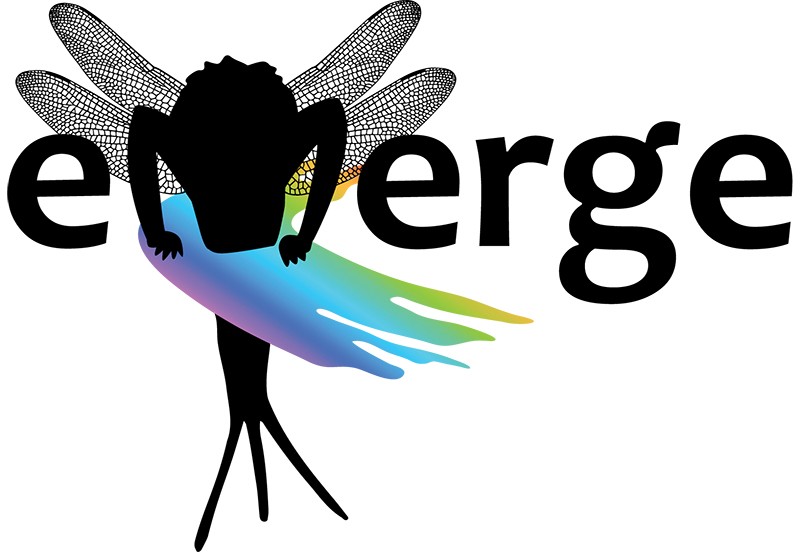Athens, Ga. – At the Society for Freshwater Science 2021 Annual Meeting, slated for May 23-27, aquatic scientists from across the country will, as always, learn about the latest research on rivers, lakes and wetlands. This year they will also have a new opportunity to create an environment of inclusion in freshwater ecology, thanks to a project led by University of Georgia ecologists Amy D. Rosemond and Amanda T. Rugenski and colleagues from other universities.
The new program, titled “Emerge: Broadening Participation and Leadership in Freshwater Science,” is funded with a five-year $2 million grant from the National Science Foundation.
“For all of us in STEM—science, technology, engineering and math—you realize the millions of people we’re leaving behind. In ecology, in freshwater science, we’re still very culturally homogenous,” said Rosemond, a professor in the UGA Odum School of Ecology. She argued that scientists have created a culture of exclusion, failing to recognize value systems that are important to others, as well as creating barriers to scientific integration.
Emerge, which is open to undergraduates, graduate students and early career scholars, is designed to break down those barriers. It builds on the existing SFS “Instars” mentoring program, which is named for an early life stage of aquatic insects. Instars is part of a 10-year commitment by SFS to provide welcoming spaces and growth experiences for students from groups under-represented in STEM fields, including those based on race, ethnicity, disability, sexual orientation, gender identity, and first-generation college status.
After seeing the success of the Instars program over the course of eight years and attending a diversity, equity and inclusivity workshop with the Ecological Society of America, Rosemond, at the time the president of SFS, saw the potential for scientific societies to be at the forefront of diversifying scientific fields.
“Scientific societies have a huge capacity to change the culture of science,” she said, “and with the critical need for increased diversity in STEM, it seemed urgent for SFS to grow opportunities for engagement with scholars from under-represented and marginalized groups. ”
While this year’s SFS annual meeting is being held remotely, the Emerge program will connect students and young professionals from around the country with a shared passion for inclusion and freshwater science.
The program doesn’t stop at the end of the conference, but will build capacity for participants to develop networks and skills with activities throughout the year. These include workshops on using data from NEON—the National Ecological Observatory Network—and the R data analysis software package and on visual communication and graphic design, as well as other opportunities to learn in a cohesive community.
Emerge builds on three processes that have been identified to facilitate retention in science: self-efficacy, science identity, and shared values. Self-efficacy will be addressed through experiences such as the workshops, where participants can ask questions and work together in an inclusive environment to master advanced skills essential to freshwater science. These types of activities will also build the science identity of participants by creating a sense of belonging and open dialogue in a scientific society setting where they have often been marginalized and under-represented. And by working together throughout the program, Emerge participants and mentors can develop a communal commitment to diversity and inclusion that can further inspire the whole organization.
“You haven’t made an inclusive environment until it becomes important to everyone and a shared value,” Rosemond said. “SFS hopes to lead in creating a model of a supportive and affirming scientific society, particularly for people who have had to face barriers in our field due to their identity.”
Like program participants, the founders of Emerge come from a variety of cultural, scientific, and academic backgrounds, integrating research and experience from four universities. Along with Rosemond and Rugenski, the undergraduate program coordinator in the Odum School of Ecology at UGA, they include Checo Colón-Gaud, professor of biology and associate dean of graduate studies at Georgia Southern University; Patina Mendez, lecturer in environmental science, policy and management at the University of California Berkeley; and Daniel McGarvey, associate professor of environmental studies at Virginia Commonwealth University. According to Rosemond, this group has been a “dream team” for pulling together the ideas and evidence that would make for a successful proposal and program.
Program coordinator Breanna Ondich, based at the University of Georgia, shared her excitement about the first year of Emerge and the impact it could have, remaining optimistic despite the setback of a remote start.
“We are one of the first scientific societies to be leading the way here, and it’s exciting to wonder what it will be like in ten years,” Ondich said. “I’m excited to see what the future holds.”
For more information and to apply to the Emerge program, visit https://freshwater-science.org/awards-programs/instars-program.

